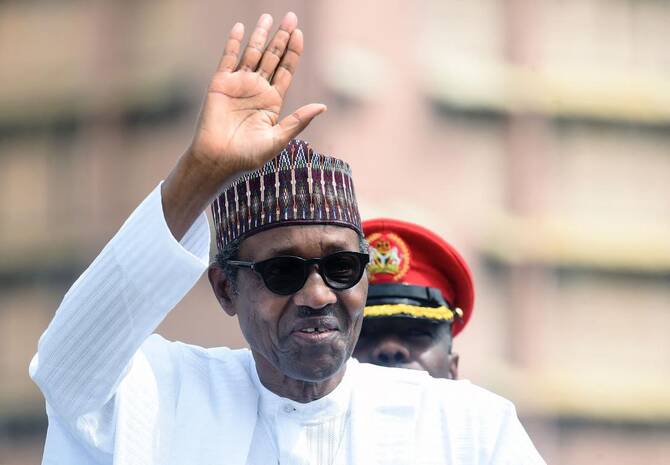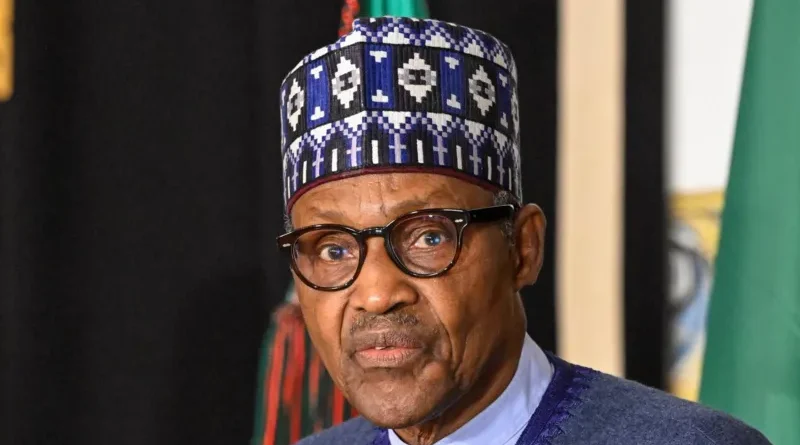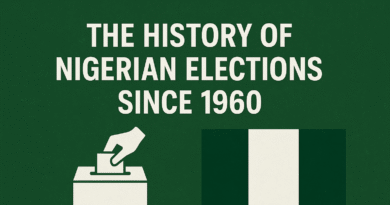Ex-Nigerian President Muhammadu Buhari Dies at 82
Muhammadu Buhari, Nigeria’s former president and one-time military leader, has died at the age of 82 in a London clinic. Known for presenting himself as a reformed democrat, Buhari made a political comeback through the ballot box after years away from power. However, he often struggled to convince citizens that the sweeping changes he promised would truly materialize.
Reserved and not naturally inclined toward the theatrics of politics, Buhari carried an image of stern discipline and integrity—an uncommon reputation in Nigeria’s often scandal-ridden political landscape.
After three failed bids for the presidency, Buhari made history in 2015 by defeating the sitting president—the first time an opposition candidate had done so in Nigeria. He was re-elected in 2019 for a second term.

His support base remained strong among the northern poor, known locally in Hausa as the talakawa. In 2015, he also benefited from a rare unified opposition coalition that backed his candidacy. His military past and strict persona led many to believe he could confront the northern Islamist insurgency with firm resolve.
Buhari campaigned on a platform of rooting out corruption, curbing nepotism, and expanding job opportunities for young people. However, his presidency was quickly overshadowed by economic troubles, including a sharp decline in global oil prices that plunged Nigeria into its worst economic crisis in decades.
Security under his administration remained a major concern. Despite pledges to crush Boko Haram, the extremist group continued to pose a serious threat, with one faction aligning itself with the Islamic State.
Ethnic tensions also worsened. Violent confrontations between farmers and nomadic Fulani herders—Buhari’s own ethnic group—intensified in central Nigeria. Critics accused him of failing to act decisively to halt the bloodshed.
The north-west saw a disturbing rise in kidnappings by armed gangs, particularly targeting schoolchildren. Meanwhile, the military came under scrutiny for alleged human rights violations, including the shooting of unarmed protesters at the Lekki tollgate in Lagos during the #EndSARS demonstrations in October 2020.
Muhammadu Buhari, Nigeria’s Ex-President and Military Ruler, Dies at 82
Muhammadu Buhari, Nigeria’s former military strongman who later returned as a democratically elected president, has died at 82 in a London clinic.
Buhari first seized power in a 1983 coup, ruling with a strict, iron-fisted style that cracked down on corruption but also on civil liberties. His short 20-month military regime became known for its rigid discipline—citizens were publicly punished for lateness and disobedience, and press freedom was tightly restricted. His government jailed hundreds, including famed musician Fela Kuti, under controversial charges.
Ousted in another coup in 1985, Buhari faded from view until the 2000s, rebranding himself as a democrat. After three failed runs for office, he shocked the political establishment by winning the presidency in 2015, defeating incumbent Goodluck Jonathan—the first such upset in Nigerian history.
He returned to power promising to root out corruption, crush Boko Haram, and revive the economy. But under his watch, oil prices crashed, inflation soared, and security worsened. Boko Haram remained active, while banditry and deadly communal clashes spread. Critics labeled his government slow, secretive, and ineffective. Even his wife, Aisha Buhari, voiced frustration over his leadership.
Still, Buhari retained a reputation for personal integrity. He lived modestly, declared his assets publicly, and avoided the lavish lifestyles common among Nigeria’s elite. But his anti-corruption drive was often criticized as selective, and his economic decisions—like banning rice imports and implementing a chaotic currency redesign—led to rising food prices and public anger. For many Nigerians, a bag of rice became the lasting symbol of their disillusionment.
Born in Daura in 1942, Buhari was the son of a Fulani herdsman and Kanuri mother. He joined the army after independence, trained in the UK, and rose to become oil minister under Olusegun Obasanjo. His strict military upbringing shaped both his leadership style and public image—stern, disciplined, and emotionally distant.
Despite his flaws, Buhari remained a towering figure in Nigerian politics, admired by many in the north and among the country’s poor for his perceived honesty and discipline.
He is survived by his wife, Aisha, and ten children.
From coup leader to elected president, Muhammadu Buhari’s life embodied the paradoxes of Nigeria’s post-independence journey—hopeful, complex, and unfinished.



